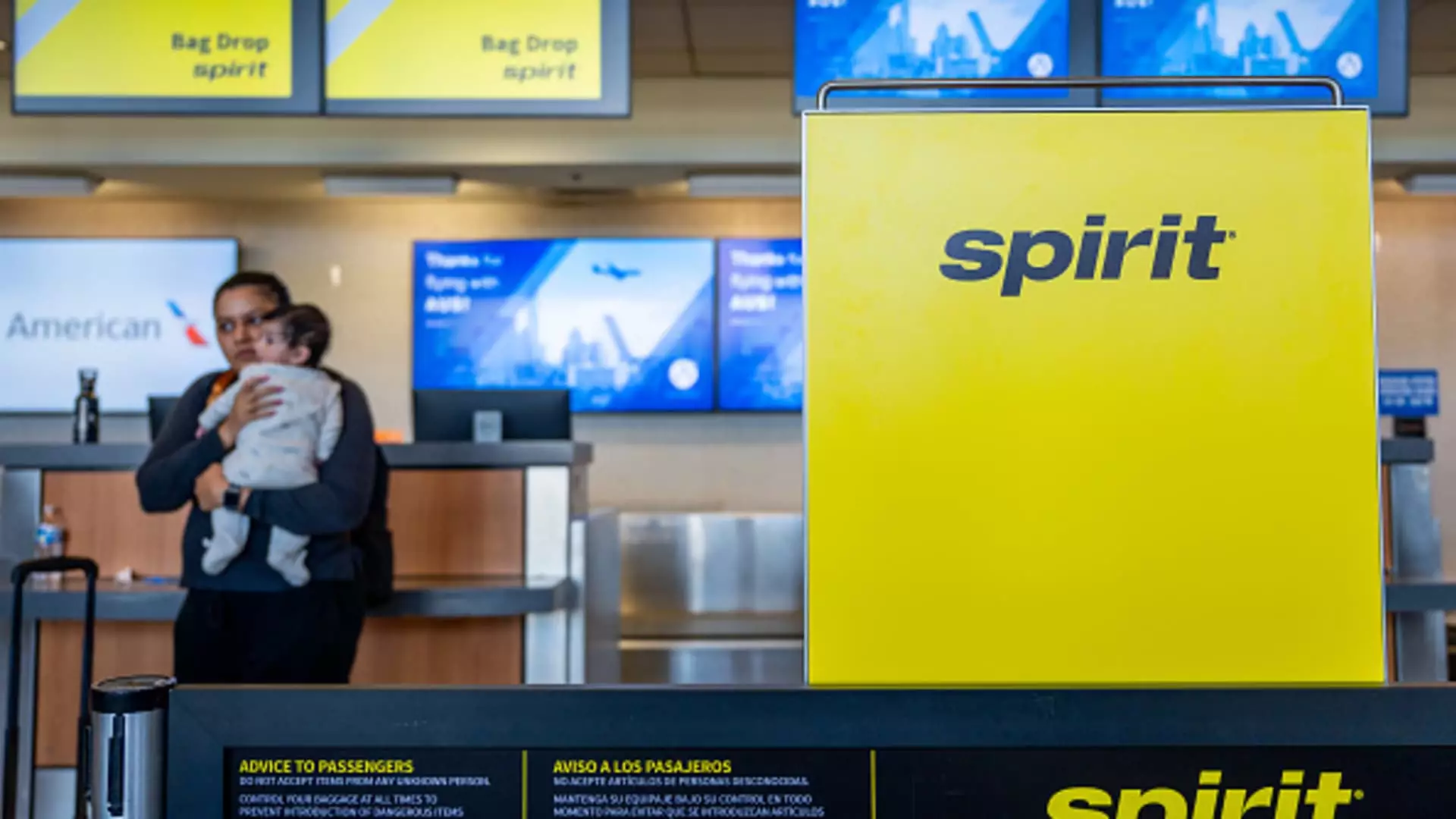In a significant move, Spirit Airlines recently filed for Chapter 11 bankruptcy protection, marking a pivotal moment as the first major U.S. passenger carrier to do so in more than a decade. While this news may evoke concerns about the airline’s viability, it is essential to understand that the filing is not an indication of immediate shutdown but rather a strategic maneuver to gain breathing room in which the airline can reevaluate its operations and financial commitments. The airline, famously recognized as a budget carrier, aims to restructure its obligations while continuing to operate flights and generate revenue.
Spirit Airlines has been grappling with financial challenges since 2019, but these difficulties intensified with the onset of the COVID-19 pandemic. The airline faced escalating operational costs, and a significant number of its Airbus aircraft were grounded due to an engine recall. Compounding these adversities was a federal court’s decision to block Spirit’s attempted merger with JetBlue Airways, which further stunted its financial recovery efforts. As the company’s circumstances worsened, it struggled under the burden of approximately $1.1 billion in debt payments that are due in the near future. The pressure was exacerbated by an impending deadline related to credit card processing arrangements, compelling Spirit to take decisive action.
Spirit has announced that it secured a prearranged agreement with a majority of its bondholders, setting the stage for a streamlined Chapter 11 bankruptcy process. The airline aims to emerge from this process by the first quarter of 2025, demonstrating its commitment to weathering this storm. The essence of Chapter 11 is not to shut down operations but to provide the airline necessary protection to reorganize. This could entail divesting certain assets or other operational changes that will allow Spirit to emerge more resilient in the competitive aviation market.
Despite Spirit’s assurances that it will maintain flight schedules during the upcoming holiday period—the airline’s busiest time—travelers may experience changes in itineraries as the restructuring unfolds. Analysts in the travel sector urge consumers to be vigilant, as alterations to the operational framework could directly impact passengers, particularly if layoffs or unexpected cancellations occur.
For consumers, the implications of Spirit Airlines’ Chapter 11 filing are profound. According to the U.S. Department of Transportation (DOT), passengers are entitled to cash refunds for any canceled flights or significantly altered itineraries. However, there are caveats; during bankruptcy proceedings, the airline might restrict refunds or vouchers to conserve cash flow. As a precautionary measure, travelers should consider purchasing their tickets with credit cards, which often offer more robust cancellation protection than other payment methods like debit cards or cash.
If you happen to find yourself in a situation where Spirit refuses a refund, your credit card provider may be able to extend support under the Fair Credit Billing Act, allowing you to dispute charges. Nevertheless, travelers must also be forewarned that last-minute ticket purchases may be exorbitantly priced due to high demand, especially around holiday seasons.
Looking ahead, experts are divided on the future of Spirit Airlines. As the airline works through its restructuring efforts, it is possible that it emerges as a leaner and more cost-effective carrier, better poised to compete in the rapidly evolving travel industry. The chapter of potential mergers also remains open. Discussions around a possible alliance with Frontier Airlines have not completely dissipated, especially as regulatory environments shift with changes in political administrations.
As Spirit navigates these tumultuous waters, passengers and industry watchers alike will be keenly observing how the budget airline adapts its strategy. If successful, it could set a precedent for how other airlines manage their debts and operational challenges during crises, ultimately reshaping the competitive landscape of domestic air travel.
Spirit Airlines’ recent Chapter 11 bankruptcy serves as a reminder of the complexities within the airline industry, highlighting the delicate balance between profitability and operational viability. As the carrier works through its restructuring process, consumers must stay informed and navigate their travel options prudently in this evolving scenario.

Leave a Reply